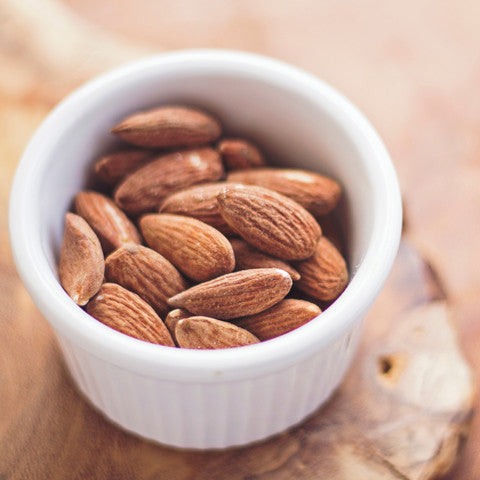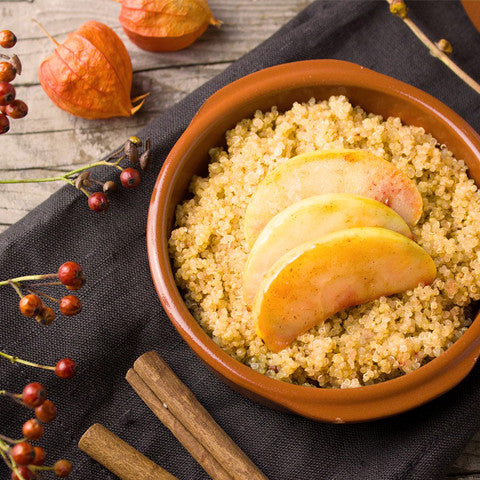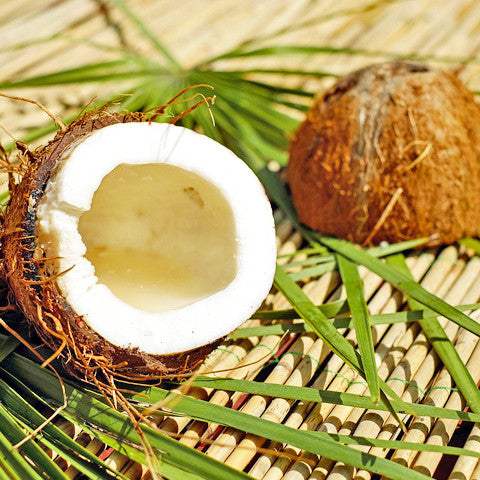Nutrient Spotlight: Fats
First off: fat doesn’t make you fat. Oranges don’t make you orange either.
For the most part though, we’re pretty aware these days that fats are an essential part of our diet. Though heavily criminalised by the sugar industry, this theory is becoming outdated, and they are regaining a good reputation as the energy-giving, healthful nutrients that they are.
‘Fats', however, is a broad term: there are lots of different kinds of fats, and it helps to understand why they are different and what they are used for in the body.
All fats are organic molecules made up from hydrocarbons, which are long chains of carbon and hydrogen atoms that are joined together. Their structure, and the way these atoms are joined together, is what determines how they interact with your body.

How fats are used in the body
Fats are our body’s secondary source of energy. They take a longer time to break down and convert into a usable form of energy, but release more energy per gram consumed than other types of nutrients (proteins, carbohydrates and alcohol).
In addition to this, a large number of our body’s tissues are comprised of fats, including brain tissue and much of our nervous system. Therefore it is imperative for good health and cognitive function that we consume not just enough fats, but high-quality fats.
Types of Fats
We’ve spoken about fats before with Dr. Nick, but here’s a breakdown of the main types of fats that you will encounter in a healthy diet:
Saturated Fats
Demonised as the original ‘bad’ fat, they play just as valuable a role in your health as any other. Though excess intake has been linked to increased LDL (‘bad’) cholesterol, this remains in dispute as more recent (higher-quality) evidence does not support it.
These are found in healthy sources such as coconut, nuts and seeds, cacao butter, ghee, and alongside animal proteins including fatty fish. Less healthy sources include processed vegetable oils, butter, cream, cheese, chocolate, pastries, as well as processed and red meats.
Unsaturated Fats
Unsaturated fats have one or more double bonds between carbon atoms, and not every carbon atom is attached to a hydrogen molecule. Unsaturated fats have a better reputation, consistently linked with lowering LDL-cholesterol (the bad one) and raising HDL-cholesterol (the good one).

Monosaturated Fats
These are found in high-fat fruits like avocados, ackee, durian and olives, as well as sunflower seeds, pumpkin seeds, sesame seeds, hemp seeds, almonds, cashews, macadamia nuts, brazil nuts, and raw oils derived from any of the above. Monounsaturated fats can help reduce bad cholesterol levels in your blood, which can lower your risk of heart disease and stroke. They also provide nutrients to help develop and maintain your body’s cells. Oils rich in monounsaturated fats also contribute vitamin E to the diet, an antioxidant vitamin most individuals need more of.
Polyunsaturated Fats
These include omega-6 and omega-3 fatty acids and are predominantly used in the body to promote growth and limit inflammation, facilitating tissue repair, and so are vital to recovery from training, as well as results.
Omega-3 Fatty Acids
Some nutrients can be converted from others and created in the body, whereas others need to be ingested - these are known as ‘essential nutrients’. There are three essential omega-3’s, DHA (docosahexaenoic acid), EPA (eicosapentaenoic acid) and ALA (alpha-linolenic acid). EPA/DHA are also the nutrients most used by our bodies, contributing to the structure of the brain, better functioning of the nervous and endocrine (hormonal) system, reducing inflammation and preventing cancer and cardiovascular diseases.
ALA is much more easily obtainable as it’s found in a ton of plant food, such as flaxseed, hemp, chia, and sweet basil seeds, as well as walnuts, quinoa, amaranth and black beans. ALA is converted into EPA.
EPA is converted in DHA, and they are the only nutrients in a human diet that cannot be obtained in adequate quantities from a strictly vegan diet. They can be consumed via marine animal sources, and also from algae if it is eaten in larger, supplemental quantities. Algae includes sea lettuce, nori, dulse, kelp, comb, hijack, spirulina and chlorella, and also contains decent quantities of vitamin B12, which can also be a common deficiency in vegans.

Omega-6 Fatty Acids
Also an essential nutrient, we need to intake omega-6 fatty acids to support the body’s basic functions. omega-6’s are both inflammatory and anti-inflammatory, and are involved in supporting the human healing response.
It’s important to keep the balance of omega-6 and omega-3 intake at an even ratio, ideally 1:1. Because Omega-6 is found in larger quantities in the modern Western diet, particularly from food items such as sunflower, corn, sesame, peanut, soybean, and canola oils, as well as factory farmed meat and dairy, this ratio tends to be far less balanced, often closer to a 16:1 and up to 30:1. Research has found a strong correlation between excessive omega-6 to omega-3 consumption and cardiovascular disease, type 2 diabetes, metabolic syndrome, obesity, arthritis, asthma, cancer, psychiatric disorders and autoimmune disease. Research also shows that lower omega-6 and higher omega-3 intake, however, has been linked with the opposite, lowering inflammation, improving cardiovascular health, immune function, and mood, as well as lowering risk of disease.
Other types of fat
Aside from the healthy fats that support internal function, give you energy, prevent disease and lower inflammation, there are also less healthy fats, which tend to occur only from food processing.
Trans/Hydrogenated Fats
When an unsaturated fat (above), is processed or heated to excessively high temperatures, it comes into contact with passing hydrogen atoms that attach themselves to the molecule making the fat hard, as opposed to soft, at room temperature. This give the fat a longer shelf life, and often improves the texture quality of the food in which it’s contained.
Trans fats are a different shape on a molecular level. As a result they interact with your body in a different way than nature intended, causing issues internally, such as adjustments to membrane fluidity and higher LDL - and lower HDL - cholesterol, which then cause cardiovascular diseases as well as cancer. Consumption of trans fats should be limited as much as possible, if not fully eliminated.
Too much saturated fat
Saturated fats have a similar potential to throw off internal processes if consumed in excess amount, and so are best consumed in smaller quantities. Due to their sturdier molecular structure, however, these fats are more ideal for cooking as they retain nutrients at a higher temperature. When choosing sources of saturated fats, more healthful options include coconut oil, ghee, and CLA. Always ensure you’re purchasing the unrefined varieties of these options, raw or extra virgin, and avoiding processed, hydrogenated alternatives.

SUMMARY:
Keep it simple!
Don’t worry too much about grams and measurements. Consume enough fats from healthy sources such as raw, unprocessed seeds, nuts and high-fat fruits, with some fish, whole eggs, a little cacao, and look at adding seaweed to your cupboards! Avoid heating oils for cooking unless it’s a stable form of fat, like coconut oil, and (like always) limit the amount of processed, pre-packaged foods that aren’t fresh, as these are more likely to contain the processed hydrogenated oils you are trying to avoid. If at all in doubt about your ability to get enough omega-3 in your life, supplement with 2-5g of fish oil (or algae oil, if you’re vegan) each day.
This blog was written by Phoebe Wynn-Jones. In 2011, hit by a moderately-sized truck travelling at a less-than-moderate speed, Phoebe was told she would never walk again. Using holistic nutrition, yoga and boxing as a means of recovery, she went on to complete her education in Biochemistry and became a qualified nutritionist in 2012.
Phoebe has since consulted on, opened and developed multiple locations within the food and fitness industry in Los Angeles, London, New Jersey and New York. She is now working out of her fight gym MBOX and other venues across East London as a nutrition coach and industry consultant, specialising in nutrition for combat sports competitors and endurance athletes. Find her on the web at impressedhealth.co.uk or on instagram @phoebej_nutrition
